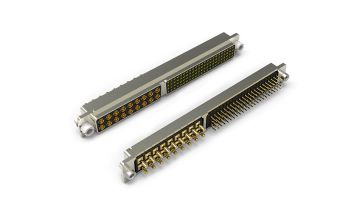By Phil McDavitt, Managing Director, Nicomatic
The need for custom connectors is mainly driven by two different sets of circumstances: when a design hits an unexpected challenge and when standard connectors can’t solve the design’s constraints.
The process of customising a connector begins with an initial meeting between customer and connector supplier’s specialist engineers, to identify in detail the requirements of the application and its challenges.
Nicomatic has been specilising in custom solutions since its early days. Following the initial meeting with the customer, its engineers create an analysis sheet, objectively scoring all available processes. Sometimes a technology bridge is needed, and Nicomatic considers this something to develop or learn, which ultimately will also add value to its existing knowledge and skills.
The process of customising a connector also considers the part’s production volumes, cost implications, customer’s NRE budget and more. Typically, Nicomatic accepts minimum order quantities (MOQ) of one, which is frequently found with custom interconnects, where a very simple modification to a standard connector will have a low MOQ. Alternatively, for complex custom designs, if the customer only wants low quantities, a project acceptance decision depends on the customer’s budget, how critical that project is for the customer and its final application.
Low-MOQ example
Nicomatic had to design cable assemblies with backshell built into the connector, producing a volume of fewer than 100. This was a sensitive defence application, with virtually no space available and one that required shielding. Nicomatic produced a customised DMM Series connector to solve the space problem of 30mm from the PCB to the cable coming out at a right angle. Using a right-angle connector was not possible because the cable needed to come out straight to clear other components on the board and then curve.
Nicomatic’s DMM Series is a highly-configurable standard connector, which was used as a basis for the custom solution. Nicomatic built the backshell into the body of the DMM connector. A concept proposal and a 3D model were delivered to the customer within two weeks, from whence the project followed the normal custom development sales process which included design tweaks and cost updates. Once approved, a full 2D drawing and proper costing was given to the customer for sign off. For this project, it took twelve weeks from signoff to production of a custom connector – a far shorter timescale than the delivery of some standard connectors.

Full custom solutions
The full custom solution is a challenge in itself and demands a different approach. This may involve custom moulding, machining and contacts, to produce a completely unique connector. As an example, Nicomatic has a dedicated line to make custom interconnects quickly without interruption to its standard production. In-house facilities include turning, stamping and moulding machines, a machining department for complex connector bodies, an assembly line, and more. There’s also a 3D-printing facility that uses latest technologies to provide a real-life sample.
Before committing to a custom moulding, Nicomatic can also fully machine a sample housing. For the connector with the integrated backshell, a 3D sample was produced with the cable fitted into it to enable the customer to see how it bends and to check its final fit for the application.
One recent example of a full custom connector involved a PCB connector with contacts for high power because it was mounted on a flexi PCB that can’t handle high current. The flexi PCB was for the signals and the cable contacts for high power, which means only one connector to plug in for the two modules whereas standard would have been more than one. The final solution kept everything simple and miniaturised.
Nicomatic also has a full test lab that does qualification testing in house, including high voltage tests, salt spray, high vibration and shock. Having this capability integrated makes the process easy flowing. A customer can request a specific test routine, Nicomatic will carry it out to the desired specification and produce all the documentation, not only saving time but also costs, since the customer doesn’t need to use external labs.
Materials
PTS is used for the 2mm pitch CMM micro-connector series, and LCP in the smaller EMM 1.27mm pitch and AMM 1.00mm series. Both provide good temperature performance and strength, and are stable with low outgassing for space applications, although LCP has superior moulding properties in very small structures. The R&D department continually monitors new materials and will select the most appropriate one for a full custom design – for example, PEEK was used for a space application in a satellite needing radiation hardness.
Outside the box
Creating a customised connector doesn’t always mean cost is the determining factor. Here, Nicomatic’s ability to solve problems gives it flexibility and responsiveness, from producing longer pins for stacked PCBs resulting in a far more cost-effective solution than changing the components on the PCB.










